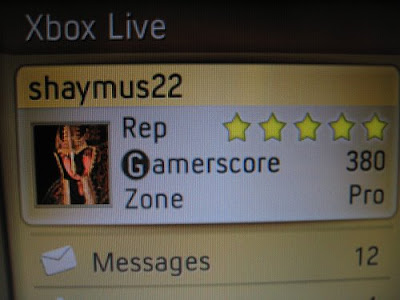Edublogger Etiquette
[Originally posted on May 1, re-posted on June 6 - in an attempt to both garner additional etiquette sightings from you and to further generate additional conversation. Remember, I'm definitely not the guru on this stuff, but we are.]
In response to Sue Water's recent post and in follow up to our final discussion in OpenPD regarding a few of the intricacies of blogger etiquette, I have decided to write a series of posts concerning the matter. I will focus all discussion of etiquette upon what has come to be termed the edublogosphere - or educational blogging - because I think that we actually have our own standard, our own set of rules, and should (more often than not) set the proper example for others.
It is my hope that such posts promote a healthy discussion about current blogging and educational trends, as well as advancing us toward a normative view of edublogger etiquette - if that’s even possible.
Several items of note:
- The entire thread of edublogger etiquette posts (that I write) can be viewed by clicking here.
- Any comment addressing the whole should most likely be assigned to this post.
- All posts that I write addressing this topic will contain both a copy of the logo I've created for this thread and a link to this post (the index post, if you will).
- Adding your voice to the comments of any post.
- Adding your voice by writing a post on your blog or on any social network. Please tag related posts with the 'edubloggeretiquette' tag and feel free to include the logo.

Any posts I identify as being connected with this topic will be aggregated here:
- Citations
- Is linking to a photo an adequate way to cite the author?
- Image Attribution
- Is it necessary to use extensive citations in our blog posts?
- How do I cite screenshots of photos?
- What about Kwout? Are the citations that it creates for screenshots adequate?
- Deep Linking
- Is deep-linking to photos, icons, or other content appropriate?
- Embedding Video
- If a video is on YouTube, does that mean that it is now fair game for posting on a blog?
- Does it matter if the content of your post is educational?
- Does it matter if the original video doesn't specify copyright restrictions?
- Responding To Comments
- Are there rules of etiquette that intrinsically govern the way bloggers should respond to comments?
- Is there a time when a blogger might be exempt from responding to the comments of his/her readers?
- Healthy Debate
- How does one identify the line between a healthy debate and a downright ugly brawl?
- What rules are inherent to such discussions?
- Inappropriate Comments
- When does a discussion of a product turn into an unacceptable advertisement?
- As the creator of a blog, what should one do to discourage such behavior?
- Online Reputation
- How is an online reputation any different than a person's reputation in the physical world?
- How might actions taken online affect a person?
- How does one improve their online reputation?
- What kinds of behaviors taint an online reputation?
- Seeding the Conversation
- What is an appropriate "rule of thumb" when posting in a non-school-affiliated space that is nonetheless open to the public?
- Twitter & Self-Promotion
- When do a person's advertisements (on various social networks) for activities they may be promoting become an undesirable display of self-promotion?
- What are the rules of etiquette - if any - that might apply to the combination of educational blogging and Twitter use?
- Student Blogging
- Must precautions be taken when posting student information to blogs (and/or other websites)?
- Is there a set of rules that one could follow that would ensure that proper publishing protocol is followed, independent of the blogger's national, state, district, or school restrictions?
- What are your rules for publishing information related to children that you know?
- Thinking Globally
- If a blog is publicly and globally accessible, should its author consider the background and cultural diversity of its readers?
- What steps can and should be taken in connection with addressing a diverse readership?
- Enforcement
- If the blogosphere is "to maintain a set of communal standards" regarding etiquette, what mechanism of enforcement can be implemented?
- What are some ways that etiquette is currently enforced throughout the blogosphere?
- What are some steps that could be taken to ensure a more consistent mechanism of enforcement?






















